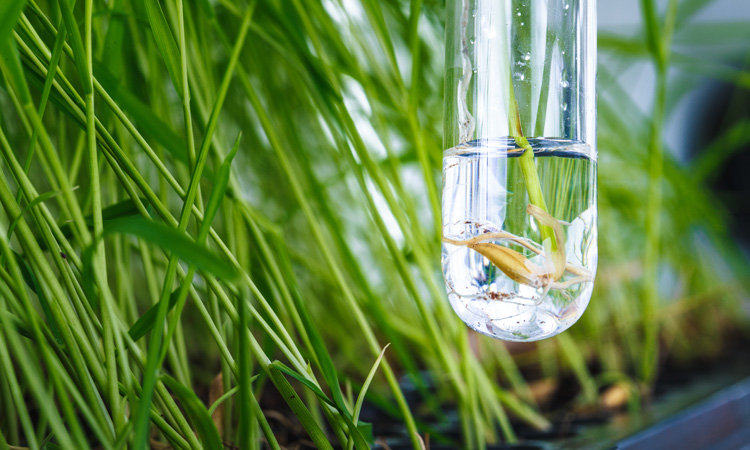We urgently need a new social discourse on breeding technologies, says expert
- Like
- Digg
- Del
- Tumblr
- VKontakte
- Buffer
- Love This
- Odnoklassniki
- Meneame
- Blogger
- Amazon
- Yahoo Mail
- Gmail
- AOL
- Newsvine
- HackerNews
- Evernote
- MySpace
- Mail.ru
- Viadeo
- Line
- Comments
- Yummly
- SMS
- Viber
- Telegram
- Subscribe
- Skype
- Facebook Messenger
- Kakao
- LiveJournal
- Yammer
- Edgar
- Fintel
- Mix
- Instapaper
- Copy Link
Posted: 28 April 2020 | Sam Mehmet (New Food) | No comments yet
An Agricultural Economist Professor has argued that fears about plant breeding technologies could be resolved through clearer discourse at an authority level.


Plant breeding technologies have increased agricultural yields drastically in the past few decades, making a significant contribution to fighting hunger and poverty, a researcher has argued, but they have also been reported to carry negative environmental effects.
A current study by the University of Göttingen has suggested that new breeding technologies – such as genetic engineering and genome surgery – can help make agriculture more productive and, at the same time, more environmentally friendly.
For the study, Agricultural Economist Professor Dr. Matin Qaim, from the University of Göttingen, researched results over the past decades. During the so-called ‘Green Revolution’, high-yielding varieties for wheat, rice and maize have been bred since the 1960s and cultivated widely, especially in Asia and Latin America. This tripled yields, which not only increased farmers’ incomes but was also said to have improved urban consumers’ access to food.
However, the high yields reportedly went hand in hand with the intensive use of chemical fertilisers and pesticides and developments were said to focus on a few types of grain, which led to a reduction in agricultural diversity.
“Grain primarily provides calories, which explains why hunger has been reduced significantly in recent decades,” explained Qaim. “Unfortunately, the Green Revolution was less successful in combating the widespread lack of micronutrients. That requires a more balanced diet and more diverse agriculture with more legumes, vegetables, fruits and other locally adapted species. ”
With new, molecular breeding technologies, plants can be modified in such a way that they are more productive, and require less fertilisers and pesticides because they make better use of soil nutrients and are more robust against diseases, pests and extreme weather conditions, according to Qaim. In addition, Qaim said that the breeding of new traits can be significantly accelerated, which enables faster adaptation to climate change.
“Although methods like CRISPR were only developed a few years ago, they have already been used successfully in many different types of plants. The methods are relatively simple and inexpensive, so even smaller laboratories can use them to improve local species. An important step towards more diversity.
Although genetically modified strains are generally considered as scientifically safe, there is still public concern about environmental and health risks. These fears are thought to originate from the fact that genetic engineering introduces foreign genes into the plants. “The rejection in the population has led to high approval hurdles that are scientifically unfounded and slow down the technology,” explained Qaim.
“The problem is that the regulatory authorities in Europe treat plants that have been genomically surgically treated in the same way as genetically modified plants with genes that are foreign to the species. This fuels public fears and prevents the further development and use of technology in agriculture. Unfortunately, the European attitude also has far-reaching effects on many poor countries, especially in Africa, where new agricultural technologies are particularly important for smallholder agriculture.
“We urgently need a different social discourse on new breeding technologies, because these can make an important contribution to sustainable agriculture and food security.”
Related topics
Environment, Food Safety, Genetic modification (GMO), Sustainability, Technology & Innovation, The consumer






